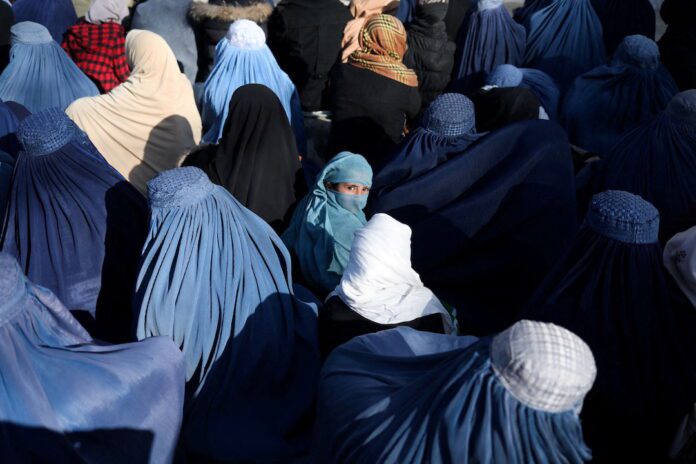Afghan women’s safety and prosperity hang by a thread. With no education and work opportunities, they fear a dark present and future, debilitating mental health, and other innumerable crises. It seems that it is a never-ending ordeal for Afghan women. Prudent and sustained measures therefore are required to help the suppressed, vulnerable population.
Under Taliban rule, Afghan women continue to face grave challenges that impede their progress, freedom, and economic prospects. Recent incidents, such as the poisoning of schoolgirls, serve as haunting reminders of the risks faced by those who dare to pursue education. The Taliban’s relentless opposition to girls’ schooling fosters an environment of fear and intimidation, perpetuating an unjust cycle of suppression. According to a report by Human Rights Watch, before the Taliban’s return to power, approximately 3.5 million girls were attending school in Afghanistan. However, since September 2021, girls’ schools for grades 6-12 remain closed.
Besides education, the exclusion of women from the workforce represents a squandered potential that leaves Afghanistan bereft of diverse skills and talents. Before the Taliban resurgence, women comprised approximately 22% of the Afghan labor force, contributing to the country’s economic growth. However, the current ban on women working in NGOs, INGOs, and the UN exacerbates the challenges faced by Afghan communities. This ban not only restricts women’s economic opportunities but also hampers the delivery of crucial humanitarian aid. According to the United Nations, more than 18 million people in Afghanistan require humanitarian assistance, and the absence of women in key organizations impedes the targeted support needed for women and girls, perpetuating their suffering and undermining overall stability.
Furthermore, the mental health crisis among Afghan women is alarming. According to a recent survey conducted by the Afghan Journalists Safety Committee, 80% of Afghan women suffer from severe psychological distress due to the deteriorating security situation and restrictions imposed by the Taliban. Dr. Amal, a psychologist working in Afghanistan, has witnessed a significant increase in calls for help since the announcement of the ban on women attending universities. In just two days, she received 170 calls for help, and now she receives roughly seven to 10 new calls every day. Suicidal thoughts have become pervasive, with depression and anxiety affecting many Afghan women and exacerbating their sense of hopelessness.
Diplomatic efforts must vehemently advocate for the protection of women’s rights and challenge the Taliban’s oppressive practices regarding girls’ education. Empowering local women’s rights organizations and amplifying their voices in decision-making processes are imperative steps toward a more inclusive and just Afghan society.
The international community must rally behind Afghan women, investing in their economic empowerment through education, vocational training, and access to financial resources. Collaborating with international organizations and neighboring countries is crucial to establish networks that provide safe spaces, healthcare services, and psychosocial support for Afghan women.
The empowerment and inclusion of women are pivotal for Afghanistan’s long-term stability, prosperity, and resilience. By dismantling barriers to education, promoting workforce participation, addressing the mental health crisis, and supporting women’s rights organizations, we can unlock Afghanistan’s true potential and pave the way for a brighter future where Afghan women can thrive and contribute fully to their society. This requires unwavering commitment and collaboration from the international community and active engagement with the Taliban to ensure that the rights and well-being of Afghan women are prioritized.




